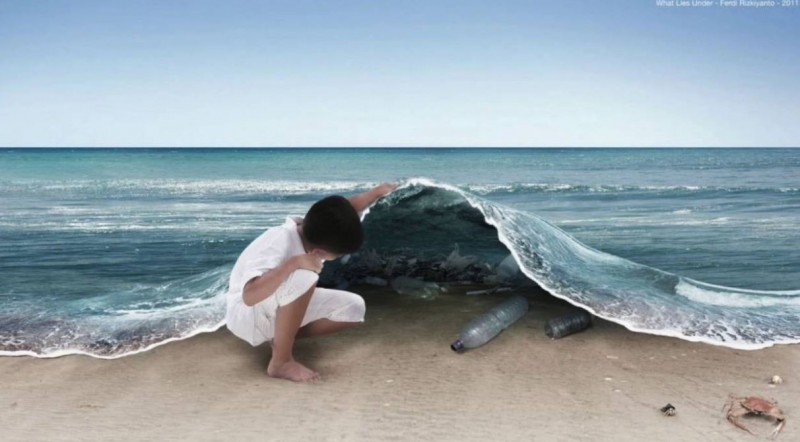
Plastic pollution has become a significant concern in recent years, posing a severe threat to marine life and the overall health of our oceans. The excessive use of plastics and improper waste management practices have led to the accumulation of plastic debris in our seas, causing detrimental effects on marine ecosystems. In this article, we will explore the various ways in which plastic pollution impacts marine life and discuss the urgent need for solutions to mitigate this environmental crisis.
Introduction
The world's oceans cover more than 70% of the Earth's surface and are home to a diverse range of marine species. Unfortunately, this fragile ecosystem is under threat from plastic pollution. The increasing production and inadequate disposal of plastic waste have resulted in severe consequences for marine life.
The Scope of Plastic Pollution
Plastic pollution refers to the presence of plastic materials in the marine environment, including oceans, seas, and other bodies of water. It encompasses a wide range of plastic items, from large discarded fishing nets to tiny microplastics that are often invisible to the naked eye. The accumulation of plastic debris poses a grave danger to marine organisms and ecosystems.
The Effects of Plastic Pollution on Marine Life
Entanglement and Ingestion
One of the most immediate and visible impacts of plastic pollution is entanglement and ingestion by marine animals. Sea turtles, seals, dolphins, and seabirds often mistake plastic debris for food or become entangled in discarded fishing gear. This can lead to suffocation, internal injuries, and even death.
Habitat Destruction
Plastic pollution can also cause significant damage to marine habitats such as coral reefs and seagrass beds. Plastic debris can smother and destroy these fragile ecosystems, disrupting the balance of marine life and reducing biodiversity.
Chemical Contamination
Plastics can release harmful chemicals into the water, posing a threat to marine organisms. Toxic substances, such as bisphenol A (BPA) and polychlorinated biphenyls (PCBs), can leach out of plastics and contaminate the surrounding environment. These chemicals can disrupt hormonal balance, impair reproductive systems, and weaken the immune systems of marine species.
Disruption of Food Chains
Plastic pollution can disrupt marine food chains, affecting organisms at various trophic levels. Small marine animals, such as zooplankton, may mistake microplastics for food, which then accumulate in their bodies. As larger predators consume these contaminated prey, the toxic effects of plastics magnify and can ultimately reach humans through the consumption of seafood.
Factors Contributing to Plastic Pollution
Single-Use Plastics
The proliferation of single-use plastics, such as plastic bags, straws, and bottles, significantly contributes to plastic pollution. These items are often used for just a few minutes but can persist in the environment for hundreds of years, causing long-lasting harm to marine life.
Inadequate Waste Management
Improper waste management practices, including insufficient recycling infrastructure and inadequate disposal facilities, lead to plastic waste ending up in our oceans. In many coastal areas and developing countries, the lack of proper waste management exacerbates the problem.
Illegal Dumping
Illegal dumping of plastic waste directly into water bodies is a widespread issue. Some individuals and industries, driven by convenience or cost-cutting measures, resort to improper disposal methods, polluting the marine environment and endangering marine life.
Microplastics
Microplastics, tiny particles of plastic less than 5mm in size, pose a significant threat to marine ecosystems. These particles can be found in cosmetic products, synthetic clothing fibers, and even in the breakdown of larger plastic debris. Microplastics are ingested by a wide range of marine organisms, causing internal injuries and potentially entering the human food chain.
The Role of Human Activities
Human activities play a crucial role in the generation and mitigation of plastic pollution. From production and consumption patterns to waste management practices, our choices and actions significantly impact the marine environment. Recognizing this, it is essential for individuals, communities, and governments to take collective responsibility for reducing plastic pollution.
Current Initiatives and Solutions
Efforts to combat plastic pollution are underway worldwide. Governments, non-profit organizations, and businesses are implementing various initiatives to address the issue. Some of the key solutions include:
Reduction of Single-Use Plastics: Encouraging the use of reusable alternatives and implementing bans or taxes on single-use plastics.
Recycling and Waste Management Improvement: Investing in recycling infrastructure, improving waste collection systems, and promoting responsible waste disposal.
Awareness and Education: Raising awareness about the impacts of plastic pollution through educational campaigns and promoting environmentally-friendly practices.
International Cooperation and Policy Changes: Encouraging collaboration among countries, implementing international agreements, and enacting policies to regulate plastic production and disposal.
The Importance of Individual Actions
While collective efforts are vital, individual actions also play a crucial role in combating plastic pollution. Simple changes in our daily lives, such as reducing plastic consumption, properly disposing of waste, and supporting eco-friendly businesses, can collectively make a significant impact on reducing plastic pollution in our oceans.
Conclusion
Plastic pollution poses a severe threat to marine life and the health of our oceans. The entanglement, ingestion, habitat destruction, chemical contamination, and disruption of food chains are just a few of the damaging effects caused by plastic debris. By taking immediate action, implementing sustainable practices, and raising awareness, we can work towards a cleaner and healthier marine environment.
Science: The Fascinating World of Epigenetics: How Our Genes Can Change
Science Fiction: Dystopian Novels and Their Reflection of Societal Issues